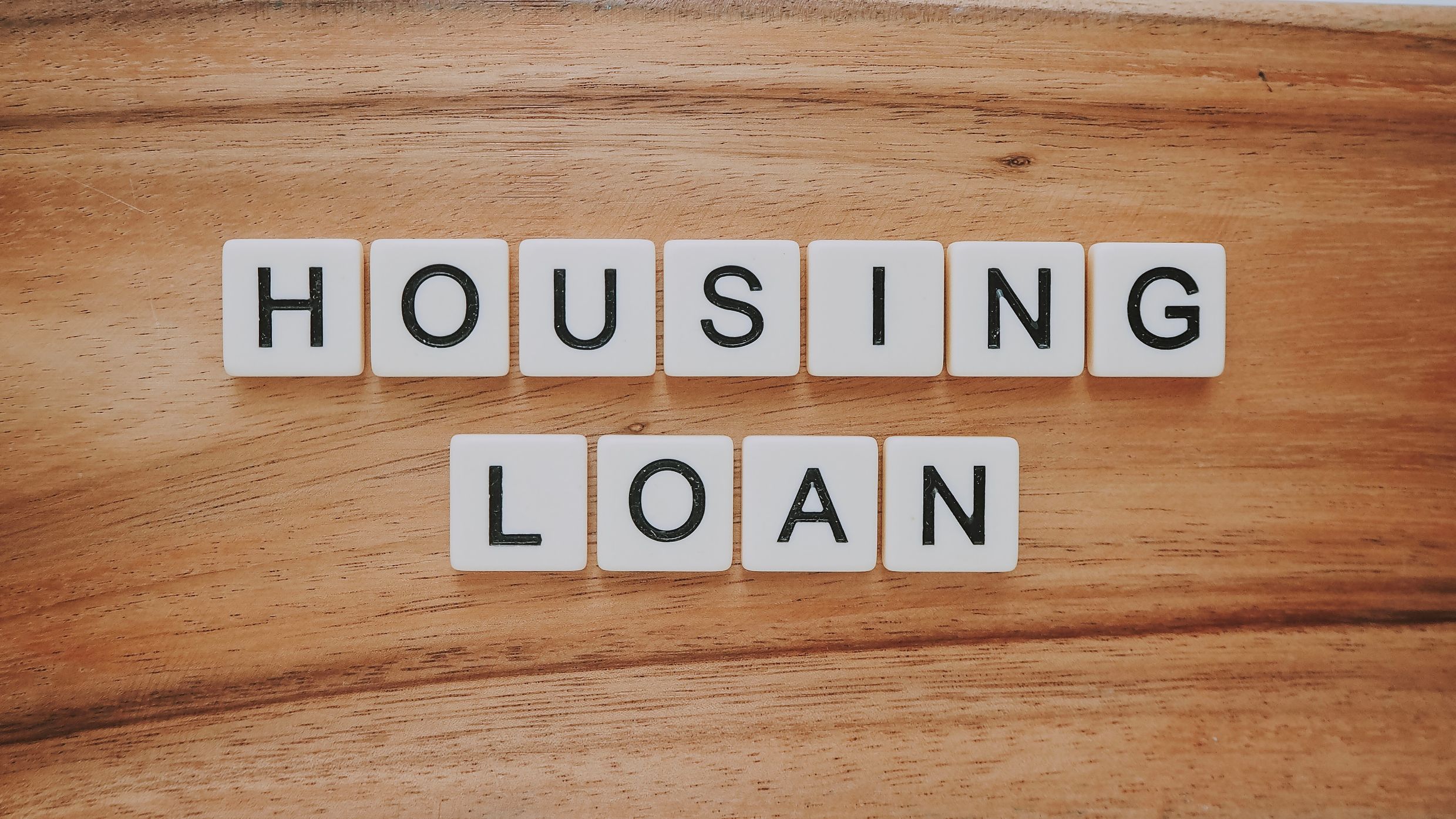How A Home Equity Loan Will Save You From Having To Sell Your Property
April 20, 2020

It’s a plain looking letter, but the final loan repayment on your house marks a real milestone in your life. Or perhaps it’s so close you can practically feel the weight coming off your shoulders – one final decade of repayments before you fully own your property.
But there’s an old saying that new levels bring new devils, and each financial milestone brings new challenges.
This may also be the time for your children to go abroad to an Ivy League school – and you can’t help noticing the bill resembles the national debt of a small, badly managed country.
Or perhaps it’s finally time to quit your job and set up your own business; but pulling the molars out of a live gorilla would be easier than getting financing right now.
That’s when you get depressing realisation that – after all these years of paying for your home, you may have to sell it after all. Well, take a deep breath: Stacked is here to help you with that. We’re going to discuss an alternative that not many home owners in Singapore know about: that’s the home equity loan, also referred to as a reverse mortgage, or cash-out refinancing.
It can be a real drag to own a fully or mostly paid-up property, but find yourself short on cash
For many Singaporeans, the bulk of our net worth is tied up in our homes; and this can result in some downright surreal situations. There really are people out there who need you to lend them $3.50 for their mee pok, even though they own a $1.5 million condo.
But hey, it’s not as if they can magically pull dollar notes out the walls of their property, right? Sometimes, renting out rooms or selling the property just aren’t viable options.
And if you’re lucky enough to have two or more properties (e.g. you and your spouse both own homes), you may be wondering if there’s more you can do to monetise the additional home, besides rent or sell.
This is where a home equity loan comes in: it’s a financing option that provides significant advantages to private property owners. Chief among them is the ability to monetise your property without having to sell or rent it out – that overcomes the issue of illiquidity, which is one of the main challenges of property assets.
How do home equity loans work?
When you take out a home equity loan, you are taking a secured loan using your property as collateral. Here’s an example:
Say you bought a condo unit for $600,000, back in the 1990’s (yes, that’s a plausible price back then). Today you have paid up all – or almost all – of the mortgage. The property has also appreciated, doubling in value to around $1.2 million.
When you take a home equity loan, you can borrow up to around 80 per cent of your property value*. This would be around $840,000, a loan quantum that’s much higher than you’d find for personal loans, education loans, and even most business loans.
What makes this deal attractive, however, is the interest rate. Because your property is used as collateral, interest can be fixed at amounts as low as 1.3 to 1.6 per cent per annum. This is even cheaper than a standard home loan, which is often at around two per cent per annum.
You can probably see the appeal to landlords as well: you take a home equity loan on a second property, which you also rent out, the rental income could more than offset the mortgage interest.
*Subject to restrictions as described below
Woah, why isn’t everyone doing this?!
Okay please don’t rush out and do this so you can buy a small yacht or something. A home equity loan should be treated as seriously as a mortgage, as the bank can foreclose on the property if you fail to make repayments.
That aside, here are some other factors to consider:
- There are restrictions, and not everyone can get the full loan quantum
- You still need to qualify as if it’s a mortgage
- You’re not supposed to buy another property this way
- Home equity loans should never be used for smaller loans

Property Market CommentaryHDB vs. SIBOR vs. Fixed Deposit: Which Home Loan is Best Right Now?
by Ryan J. Ong1. There are restrictions, and not everyone can get the full loan quantum
More from Stacked
So many readers write in because they're unsure what to do next, and don't know who to trust.
If this sounds familiar, we offer structured 1-to-1 consultations where we walk through your finances, goals, and market options objectively.
No obligation. Just clarity.
Learn more here.
Are Shoebox Units A Good Retirement Option? Here Are The Pros And Cons
To most Singaporeans, the term “shoebox unit” or “compact unit” is synonymous with property investment. Indeed, renting out a one-bedder…
Home equity loans are not available for public housing, only for private properties.
While the maximum loan quantum is usually 80 per cent of your property value, this is reduced if you have an outstanding mortgage. The loan quantum is always reduced by the outstanding mortgage, plus the CPF monies that you’ve used.
For example:
Say your property value is $1.5 million, and you have an outstanding loan amount of $300,000. You have used $600,000 from your CPF, to pay for the house over the years. Your maximum loan quantum is:
$1.2 million (80 per cent of property value) – $300,000 (outstanding loan) – $600,000 (CPF) = $300,000
In addition, the maximum loan tenure is 75 minus your age, and minus the number of years servicing the mortgage. So if you’re 45 years old, and you’ve serviced the mortgage for 15 years, your loan tenure is (75 – 45 – 15) = 15 years
2. You still need to qualify as if it’s a mortgage
The Total Debt Servicing Ratio (TDSR)* still applies, unless you’re borrowing only half the property value or less (e.g. if the property value is $1.5 million, and you’re only borrowing $750,000 or less, there’s no TDSR requirement).
Likewise, banks will still do the usual credit checks, and will vary their decision based on the property.
It’s possible that the bank won’t give you the full loan quantum, or will deny you the loan, if they feel there’s too much risk.
We can tell you that – in practice – many lenders are reluctant to approve home equity loans if you still have a large outstanding mortgage. It’s much easier to get a home equity loan if the property is fully paid up, or close to it.
Incidentally, if you have an outstanding loan, your home equity loan must come from the same bank you have a mortgage with. You can’t owe the same house to two different banks.
To find out more about mortgages and home loans, do like us on Facebook. We’ll update you with important details about securing affordable home loans, to make you an informed property buyer.
*The TDSR restricts your maximum monthly loan repayments to 60 per cent of your monthly income. This is inclusive of all your debts, including personal loans, car loans, etc.
3. You’re not supposed to buy another property this way
If you tell the bank you intend to buy another property, they won’t give you a home equity loan. And while this sort of loan is disbursed in cash, you should never lie and buy another property; the bank might come after you for fraud.
You’re free to invest the money in other assets as you like though.
4. Home equity loans should never be used for smaller loans
Administrative fees for home equity loans can range between $2,000 to $3,000. As such, this is not the right loan option for small amounts (e.g. it’s a waste of money to pay $2,000 to borrow, say, $50,000).
Home equity loans are appropriate for larger loans, such as $100,000 or above. For smaller loans, talk to the bank to see if there are other alternatives.
Do consider the psychological impact of a home equity loan, before applying for one
While the interest rate is low, there is potential stress from having your home “on the hook” a second time; especially if you were already done paying for it once. If so, a home equity loan may not be the correct option for you.
However, bear in mind that this exists as an alternative to selling your property. Sometimes, it’s less painful to use a home equity loan than to be forced to sell and move.
A home equity loan is also one of the major advantages to owning a private property, over an HDB flat. If you’re interested in upgrading, check out the Stacked in-depth condo reviews, so you can make a truly informed decision.
At Stacked, we like to look beyond the headlines and surface-level numbers, and focus on how things play out in the real world.
If you’d like to discuss how this applies to your own circumstances, you can reach out for a one-to-one consultation here.
And if you simply have a question or want to share a thought, feel free to write to us at stories@stackedhomes.com — we read every message.
Frequently asked questions
What is a home equity loan and how does it work?
Can I get a home equity loan if I still have an outstanding mortgage?
Are there restrictions on who can apply for a home equity loan?
Can I use a home equity loan to buy another property?
Is a home equity loan suitable for small borrowing amounts?
What should I consider before taking a home equity loan?
Ryan J. Ong
A seasoned content strategist with over 17 years in the real estate and financial journalism sectors, Ryan has built a reputation for transforming complex industry jargon into accessible knowledge. With a track record of writing and editing for leading financial platforms and publications, Ryan's expertise has been recognised across various media outlets. His role as a former content editor for 99.co and a co-host for CNA 938's Open House programme underscores his commitment to providing valuable insights into the property market.Need help with a property decision?
Speak to our team →Read next from Property Market Commentary

Property Market Commentary How I’d Invest $12 Million On Property If I Won The 2026 Toto Hongbao Draw

Property Market Commentary We Review 7 Of The June 2026 BTO Launch Sites – Which Is The Best Option For You?

Property Market Commentary Why Some Old HDB Flats Hold Value Longer Than Others

Property Market Commentary We Analysed HDB Price Growth — Here’s When Lease Decay Actually Hits (By Estate)
Latest Posts

Pro Why Some Central Area HDB Flats Struggle To Maintain Their Premium

Singapore Property News Singapore Could Soon Have A Multi-Storey Driving Centre — Here’s Where It May Be Built

Singapore Property News Will the Freehold Serenity Park’s $505M Collective Sale Succeed in Enticing Developers?




































0 Comments